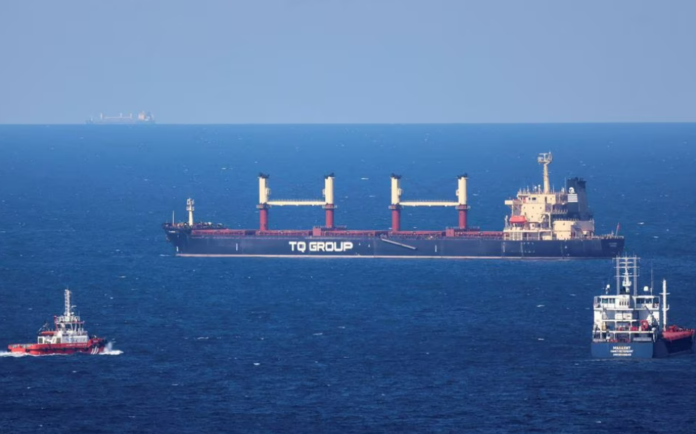The European Union has warned developing countries that Russia is offering cheap grain “to create new dependencies by exacerbating economic vulnerabilities and global food insecurity,” according to a letter seen by Reuters on Wednesday.
EU foreign policy chief Josep Borrell wrote to developing and Group of 20 countries on Monday to urge them to speak “with a clear and unified voice” to push Moscow to return to a deal that allowed the safe Black Sea export of Ukraine grain and to stop targeting Ukraine’s agricultural infrastructure.
The Black Sea deal was brokered in July 2022 by the United Nations and Turkey to help ease a global food crisis following Russia’s invasion of Ukraine. After Russia quit last month it began targeting Ukrainian ports and grain infrastructure on the Black Sea and Danube River and global grain prices spiked, Reuters reports
“As the world deals with disrupted supplies and higher prices, Russia is now approaching vulnerable countries with bilateral offers of grain shipments at discounted prices, pretending to solve a problem it created itself,” Borrell said.
“This is a cynical policy of deliberately using food as a weapon to create new dependencies by exacerbating economic vulnerabilities and global food insecurity,” he added.
Russian President Vladimir Putin told African leaders last week that Russia was ready to replace Ukrainian grain exports to Africa on both a commercial and aid basis to fulfill what he said was Moscow’s critical role in global food security.
Russia has said that if demands to improve its own exports of grain and fertilizer were met it would consider resurrecting the Black Sea agreement. One of Moscow’s main demands is for the Russian Agricultural Bank to be reconnected to the SWIFT international payments system. The EU cut it off in June 2022.
“The EU has spared no effort to ensure that sanctions have no impact on the food security of third countries. There are no sanctions on Russia’s exports of food and fertiliser to third countries,” Borrell wrote.
He added that “the EU has been fully committed to preventing over-compliance and de-risking activities” and outlined some of those.
U.N. Secretary-General Antonio Guterres said last month that U.N. officials had “recently brokered a concrete proposal” with the European Commission to enable a subsidiary of the Russian Agricultural Bank to regain access to SWIFT.
Borrell did not mention that proposal in his letter. He said the EU would “continue to support the tireless efforts” of the United Nations and Turkey to revive the Black Sea grain deal.
Borrell shared the July 31 letter with his EU counterparts on Wednesday, saying it aimed “to counter Russian disinformation around global food security and the impact of EU sanctions.”
He said it was key that EU countries continued lobbying the rest of the world on food security, particularly ahead of the annual gathering of world leaders at the United Nations in New York next month.
U.S. Secretary of State Antony Blinken is due to chair a U.N. Security Council meeting on Thursday on famine and global food insecurity caused by conflict.


